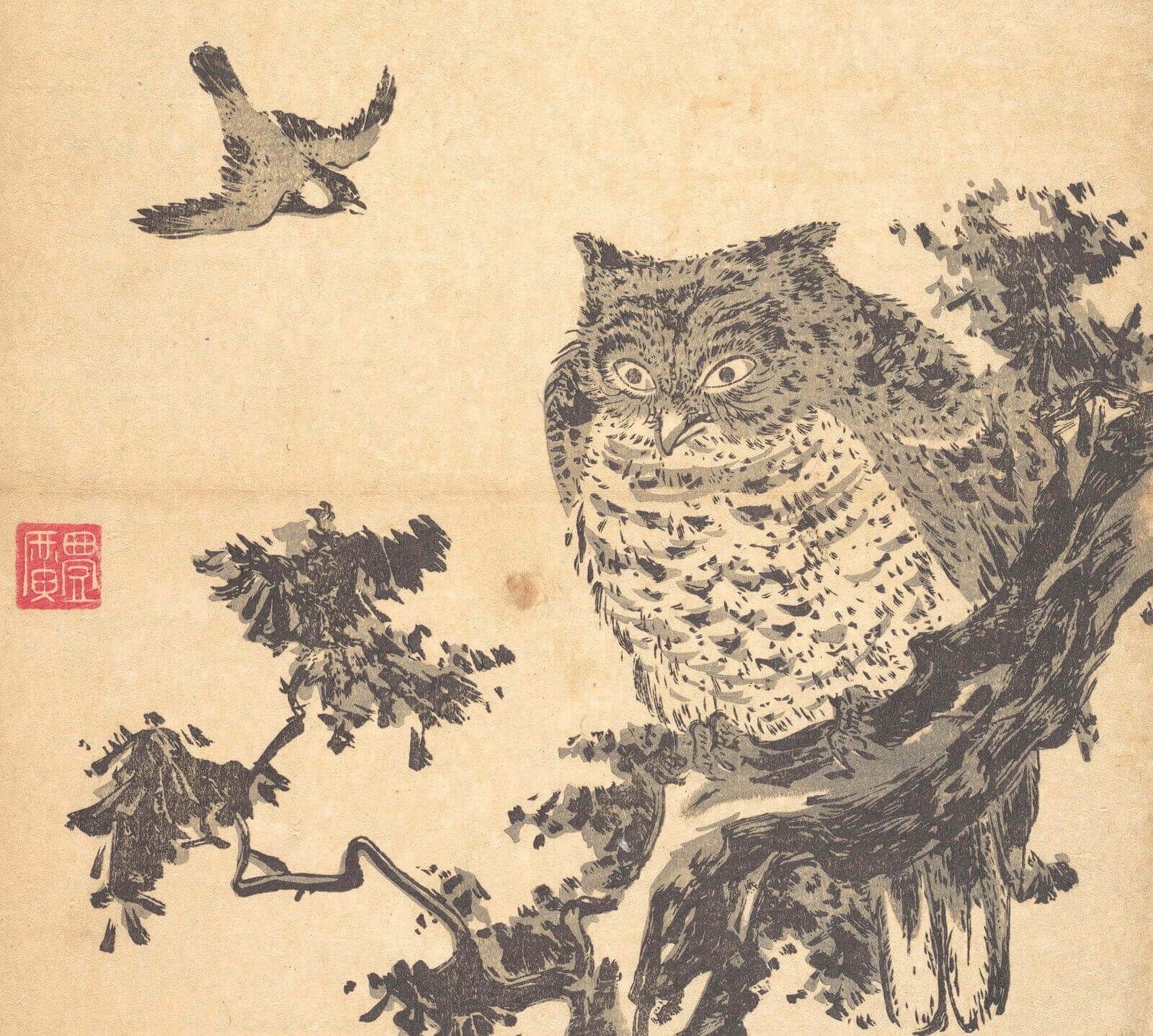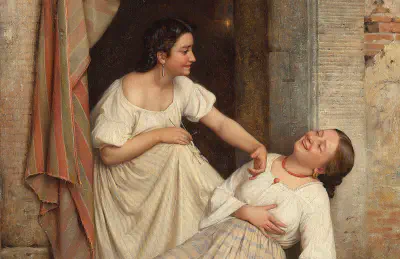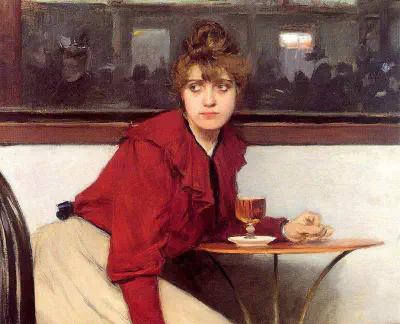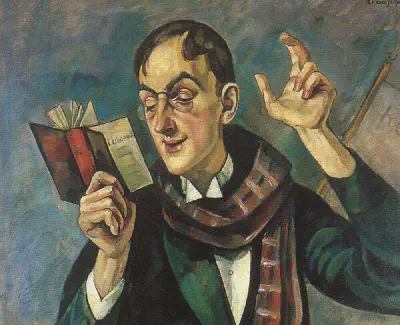Socrates and Zhuang Zhou on not knowing
Welcome back. In the previous piece, we saw how Aristotle carves up human activity to distinguish between production, chosen action and contemplation. And we looked at the distinction between theoretical wisdom and what Aristotle calls phronesis or practical wisdom. According to Aristotle, we can develop our faculties to become wiser, both in terms of how we think about the world and in terms of how we act.
But this time, we’re going to ask about the limits of wisdom. We might think that wisdom is a good thing and that we should try to have as much of it as possible. But how practical is the goal of becoming wise? Knowing what we know about human life, is it reasonable to aspire to wisdom? And if so, how much wisdom can we hope for?
We’re going to explore these questions with the help of two very different philosophers: Zhuang Zhou, from the Chinese tradition, and Socrates from the Greek tradition. So let’s dive in, and start with Socrates.
What Can We Know?
Gods, oracles and human wisdom
Socrates is one of history’s most maddening, strange and perplexing philosophers. He was born in Athens around 470 BCE. His mother was a midwife and his father was a stonemason, and Socrates may have spent some time working in his father’s family business. Socrates was a rough character, famously ugly, both blunt and compelling in speech. And he was driven to philosophy by a strange encounter with the oracle of the god Apollo.
According to the story Socrates tells in Plato’s Apology, Socrates’s childhood friend Chaerephon once went to consult the oracle of Apollo at Delphi. The question he put to the oracle was this: was anyone in Athens wiser than Socrates? The oracle confirmed that there was nobody wiser than Socrates. So Chaerephon hurried back to Athens and told Socrates what the god had said. But the philosopher was perplexed by this godly pronouncement.
When I heard of this reply I asked myself: “Whatever does the god mean? What is his riddle? I am very conscious that I am not wise at all; what then does he mean by saying that I am the wisest? For surely he does not lie; it is not legitimate for him to do so.”Plato, Apology 21a [1]
For Socrates, the oracle could not be wrong: it was the nature of the gods to be wise. But this left him with a problem. Socrates certainly didn’t feel particularly wise. So what was the god up to?
Resolving to get to the bottom of the mystery, Socrates wandered around Athens, collaring passers-by, and cross-examining them about their wisdom (the term for this cross-examination is elenchus: see the Philosopher File on Socrates). He started out by talking to the members of Athens’s intellectual elite, and he found that their wisdom seemed to dwindle under cross-examination. Next, he talked to the politicians, and the same thing happened. After this, he talked to the poets and the craftspeople and found they didn’t know much either. In this way, it began to dawn on him that human wisdom is in pretty short supply.
What is probable, gentlemen, is that in fact the god is wise and that his oracular response meant that human wisdom is worth little or nothing, and that when he says this man, Socrates, he is using my name as an example, as if he said: “This man among you, mortals, is wisest who, like Socrates, understands that his wisdom is worthless.”Plato, Apology 23b [2]
So Socrates concluded that the oracle was perhaps right: nobody knew anything, but Socrates knew he didn’t know anything, and so he had some claim to being the wisest in all Athens.
However, Socrates’s quest to work out what the oracle was talking about had unfortunate consequences. His cross-examination punctured the self-worth of his fellow-citizens and made him unpopular. Eventually, he was put on trial on charges of impiety and corrupting the youth of the city. Plato’s Apology, where this story about the oracle comes from, is an account of his Socrates’s defence. And although it is a compelling read, as a defence it was unsuccessful: Socrates was found guilty and executed.
What if the best we can hope for is knowing we don’t know?
There are different ways of reading Socrates’s conclusion. On the one hand, we could read Socrates as meaning that human wisdom is simply very difficult to attain—and if we want to get started on wisdom, we need to recognise that we know nothing. In this view, wisdom starts (as we saw in the first piece in this current series) with the humility of knowing how little we know. Once we have faced up to how shaky and uncertain the foundations of our knowledge, then we can set about developing wisdom.
There is, however, a more unsettling reading. What if Socrates is saying that human wisdom is not up to scratch, and can never be up to scratch? What if human wisdom is entirely deficient, and we cannot develop any more wisdom than the knowledge of our ignorance? Where does this leave philosophy, the love of wisdom? Does it undermine the search for wisdom? Or does it leave us starting out again and again, striving for the wisdom we will never attain, treading a path where our progress can be measured only by the continual deepening of our understanding of how very little we know?
Butterflies, dreams and the finitude of knowledge
A long way from Athens, a century after Socrates, another philosopher started to raise questions about the deficiencies of human claims to wisdom. That philosopher was Zhuang Zhou.
Zhuang Zhou is said to have lived around the fourth century BCE and is traditionally credited as being the author of the text called “Master Zhuang” or the Zhuangzi (sometimes also written Chuang Tzu). In this piece, I’ll use Zhuang Zhou to refer to the historical individual, and “the Zhuangzi” to refer to the text that bears his name.
As is fitting for a philosopher who is sceptical about what we can know, we don’t know much about Zhuang Zhou. The later historian, Sima Qian (c. 145-86 BCE), suggested that came from the small town of Meng in the ancient state of Song, where he held a low-ranking official position. Sima Qian gives another few glimpses of Zhuang Zhou’s life, but these all seem to be culled from stories that appear in the Zhuangzi itself.
Although the Zhuangzi is attributed to Zhuang Zhou, scholars have argued it is not a single-authored text so much as a loose anthology of writings, parts of which date back at least to 300 BCE. But although the content of the Zhuangzi is quite varied, the whole book is pervaded by a remarkably unified spirit of rambunctious playfulness. It is a riot of stories, jokes, riddles, digressions and philosophical puzzles that grapple with questions of what we can know, and what value knowledge and wisdom have.
One of the most famous stories in the Zhuangzi talks about how Zhuang Zhou fell asleep and dreamed he was a butterfly. The story goes like this:
Once Zhuang Zhou dreamt he was a butterfly, fluttering about joyfully just as a butterfly would. He followed his whims exactly as he liked and knew nothing about Zhuang Zhou. Suddenly he awoke, and there he was, the startled Zhuang Zhou in the flesh. He did not know if Zhou had been dreaming he was a butterfly, or if a butterfly was now dreaming it was Zhou.Zhuangzi: The Essential Writings [3]
Nourishing our lives
The Zhuangzi is full of moments of philosophical whimsy like this. But this whimsy is also part of a bigger set of concerns about what it means to be wise, and the limits of human wisdom. Earlier in the same section of the Zhuangzi, you can find is the following passage:
The flow of my life is bound by its limits; the mind bent on knowledge, however, never is. If forced to follow something limited by no bounds, the bounded [current of life] is put in danger. And to meet this danger by enhancing knowledge even further—that merely exacerbates the danger. Zhuangzi: The Essential Writings [4]
In other words, there are countless things we could know: our hunger for knowledge can go on and on. But ultimately we are finite beings. For the Zhuangzi, the idea that we could attain to some kind of final, ultimate knowledge is a problem not because it is impossible, but because we end up exhausting ourselves in the attempt.
In the Zhuangzi, our vitality is something that needs to be nourished and guarded; and the quest for knowledge and wisdom is one of the ways that we can dissipate this vitality. To care for our lives, we need to practice what one contemporary philosopher has called “knowledge abstinence” [5]. We need to stop chasing after knowledge, recognising that this is an unending and often thankless quest, one that puts our life in danger.
Fom the point of view of the Zhuangzi, the tale of Socrates being put to death is not so much a story of heroic commitment to truth as it is a story of how we stupidly (and thus unwisely) put our lives in danger by our futile commitment to the pursuit of wisdom. The response from the author of the Zhuangzi to Socrates might simply be “I told you so!” And Socrates’s obsession with scuttling around Athens in a quest for wisdom is almost a textbook example of somebody whose inability to abstain from knowledge has led to their destruction.
The trouble with ethics
But so far, we have only been talking about knowledge. So, where does this leave us with questions of practical wisdom? Because wisdom is not just about what we know; it is also about what we do — think of the unwise friend we met in the first piece in this series who tries to cuddle the gorilla in the zoo. For the Zhuangzi, the pursuit of knowledge is, practically speaking, potentially harmful. And we encountered this idea in the last article on Aristotle, with the story of the philosopher Thales who fell into a well. But the Zhuangzi goes one further to insist that the pursuit of practical wisdom, or the cultivation of virtue, can itself be ruinous.
In Ancient China, one of the most enduring ideals was that of the Confucian sage. In Confucianism, the sage or sheng ren was upstanding and upright. They knew how to perform the correct rituals and rites. They understood how music (an important theme for Confucian philosophers) brought about harmony. And they conducted themselves according to humanity and justice (ren yi in Chinese).
But the Zhuangzi pokes fun at these paragons of virtue:
Then along came the sages. Limping and staggering after Humanity, straining on tiptoe after Responsibility, they filled everyone in the world with self-doubt. Lasciviously slobbering over music, fastidiously obsessing over ritual, they got everyone in the world to take sides.Zhuangzi: The Essential Writings [6]
We might think that ethics — practical wisdom, or a concern with the goodness of our chosen action — is the solution to our problems. But the Zhuangzi challenges us to consider something shocking. What if it is precisely because of our ethical concerns and commitments that people end up taking sides? What if it is our limping and staggering after virtue that causes division between us?
Who ate all the cookies?
This concern is echoed by Socrates, back over in Greece. In one of Plato’s early dialogues, the Euthyphro, Socrates is outside the court-room where he is about to be tried for impiety. He meets a young man, Euthyphro, who is taking his father to court on similar charges. And the two men start debating the question of what is meant by “piety.”
During the debate, Socrates asks Euthyphro about the roots of our hatred and anger. What are the subjects, he asks, that cause us to get hot under the collar? Certainly not disagreements about things that can be easily measured: nobody would go to war over the question of how many cookies were left in the jar: they would just count the remaining cookies…
But what they might go to war over is the question of who ate all the cookies. This is how Socrates argues the case:
What subject of difference would make us angry and hostile to each other if we were unable to come to a decision? Perhaps you do not have an answer ready, but examine as I tell you whether these subjects are the just and the unjust, the beautiful and the ugly, the good and the bad. Are these not the subjects of difference about which, when we are unable to come to a satisfactory decision, you and I and other men become hostile to each other whenever we do? Plato, Euthyphro (7d) [7]
Cutting wisdom down to size
This is a challenging question: what if our concern with ethics is not the solution to our problems, but a part of the problem? If so, then what are we to do? In answering this question, Socrates and the Zhuangzi take slightly different paths. Socrates seems to hold to the idea that ethical knowledge is worth seeking, even if he is not sure we can attain it. And if nothing else, on this quest we might see through the shakiness of our own moral convictions, and find ways to de-escalate the worst of our conflicts.
But the Zhuangzi takes an even more radical view. It suggests that when it comes to practical wisdom, we should give up entirely on the idea of becoming exemplary. We should stop trying to be good, and lower the moral bar. Because only when we stop straining after goodness can we nourish our lives, and guard ourselves against the perils of existence.
For the Zhuangzi (although not for Socrates), perhaps Mary Oliver’s advice in her poem Wild Geese is closest to the mark, as it replaces the search for knowledge and goodness with the art of tending and nourishing our life.
You do not have to be good.You do not have to walk on your kneesfor a hundred miles through the desert repenting.You only have to let the soft animal of your bodylove what it loves…
Questions
Here are some questions to get you thinking about this week’s theme’s.
- Is Socrates too pessimistic about the possibility of human wisdom? Aren’t there things that we can know?
- Can you think of any examples of times where “knowledge abstinence” might be a good thing? Or is all knowledge worth having?
- In what sense does the pursuit of knowledge stand in the way of nourishing our vitality (if it does)?
- For both the Zhuangzi and Socrates, our concern with ethics can cause all kinds of problems. Does this mean we should, as the Zhuangzi seems to suggest, give up on ethics entirely? Or are there ways of keeping a commitment to ethics, while better managing these problems?
Notes
[1] Plato: Complete Works, ed. John M. Cooper (Hackett 1997), p. 21
[2] ibid. p. 22
[3] Zhuangzi: The Essential Writings with Selections from Traditional Commentaries, trans. Brook Ziporyn (Hackett 2007), p. 24
[4] ibid. p. 27
[5] “Idiotic Irony in the ‘Zhuangzi’”, Hans-Georg Moeller, Chinese Literature: Essays, Articles, Reviews, Vol. 30 (December 2008), pp. 117-123
[6] Zhuangzi: The Essential Writings, p. 56
[7] Plato: Complete Works, p. 7
More further reading
Books and articles
Bryan van Norden’s Introduction to Classical Chinese Philosophy (Hackett 2011) is a good, thorough introduction.
Also try Michael Puett’s The Path: A New Way to Think about Everything (Penguin 2016).
Online resources
Try this piece on Zhuangzi over on Aeon Magazine.
Image: Utagawa Toyohiro (1773–1828) Owl and Two Swallows, Public Domain via Wikimedia Commons.



